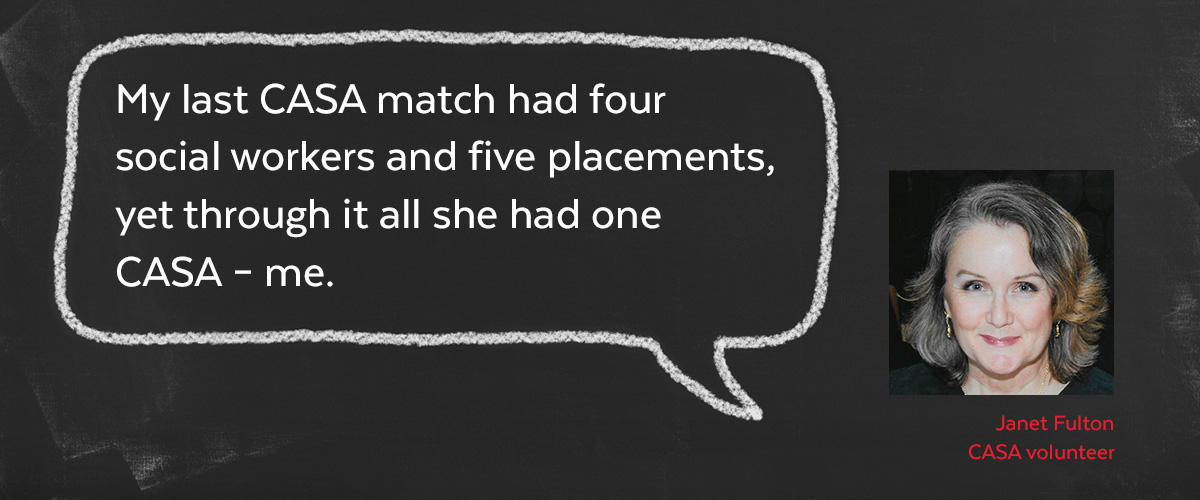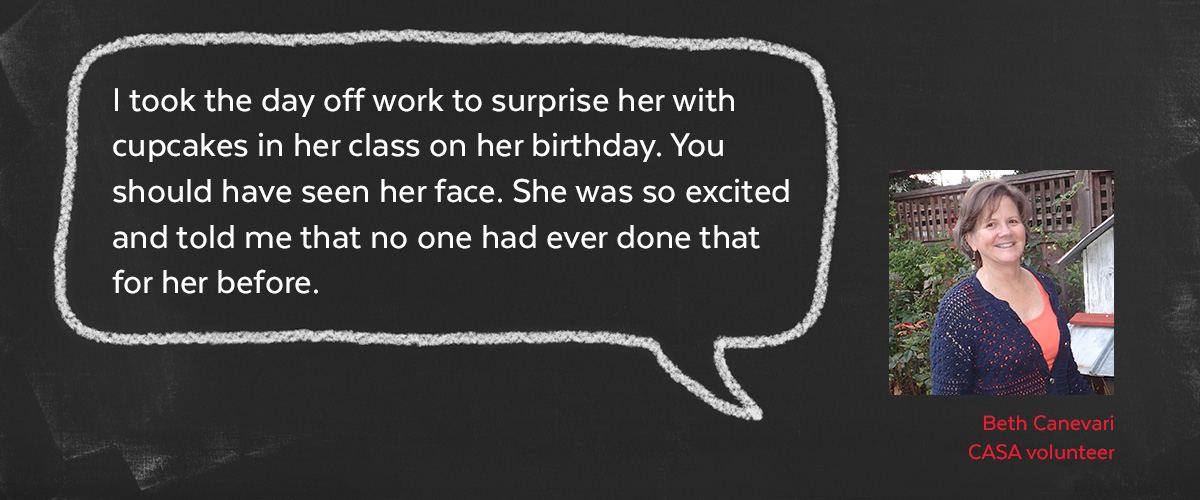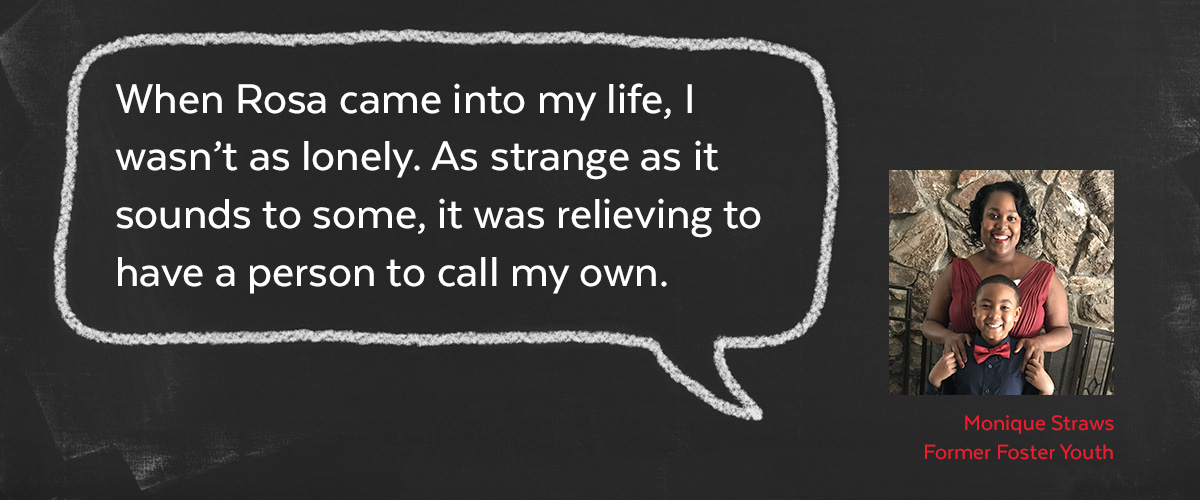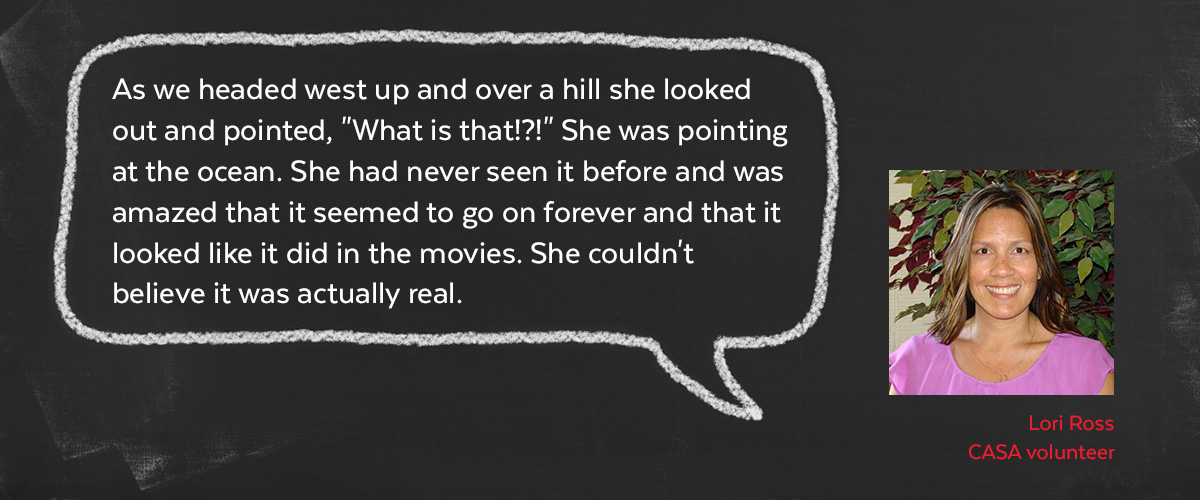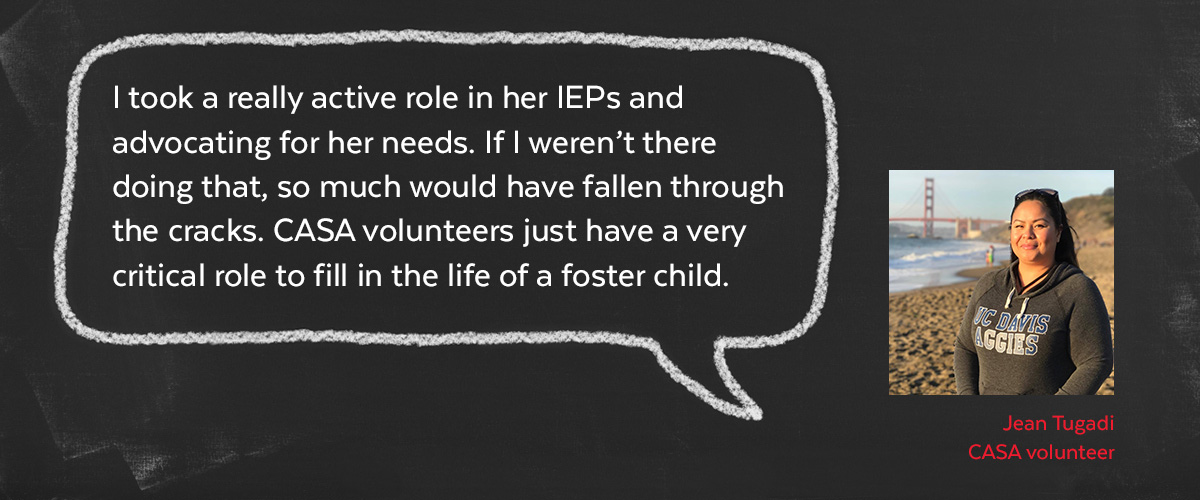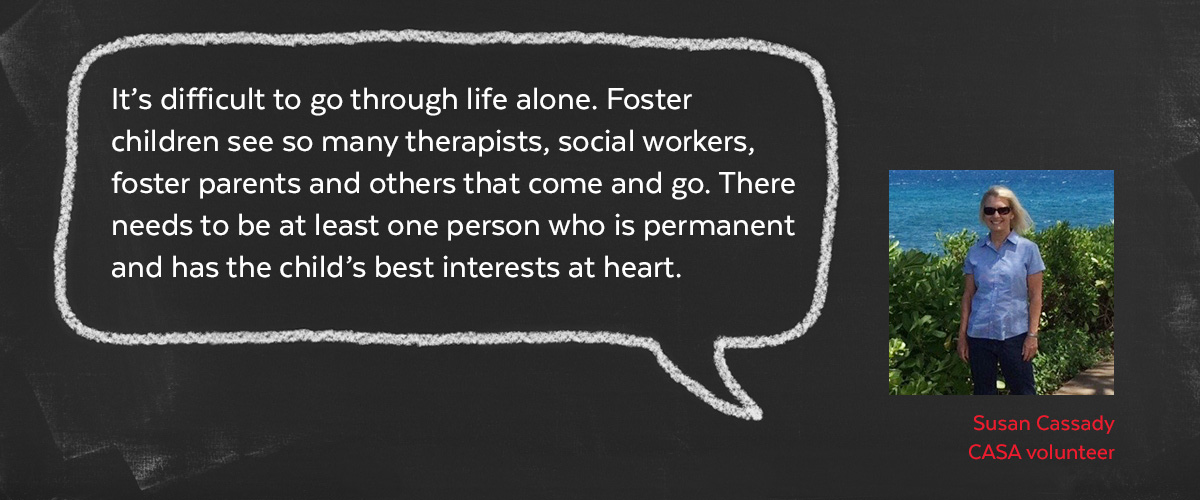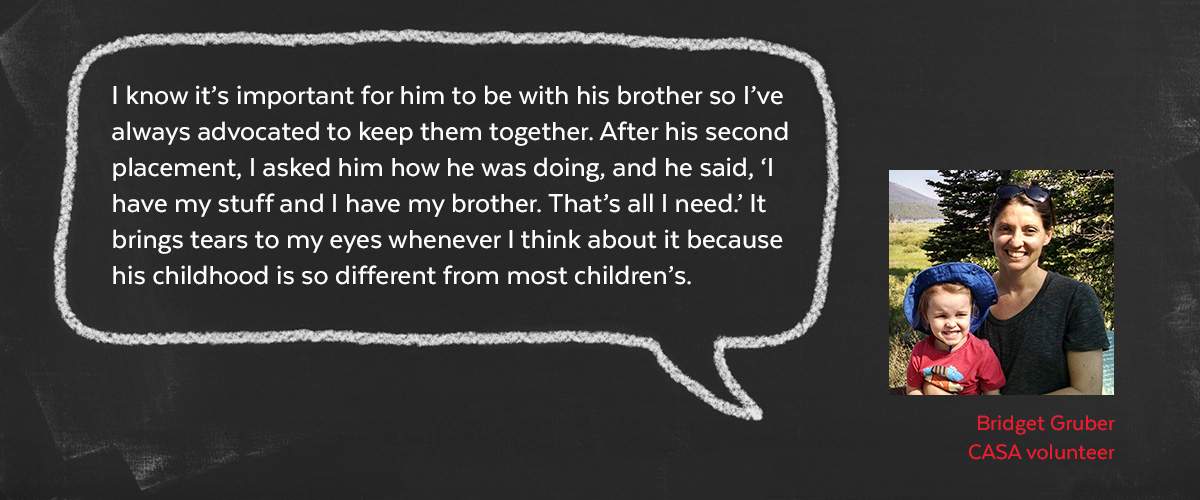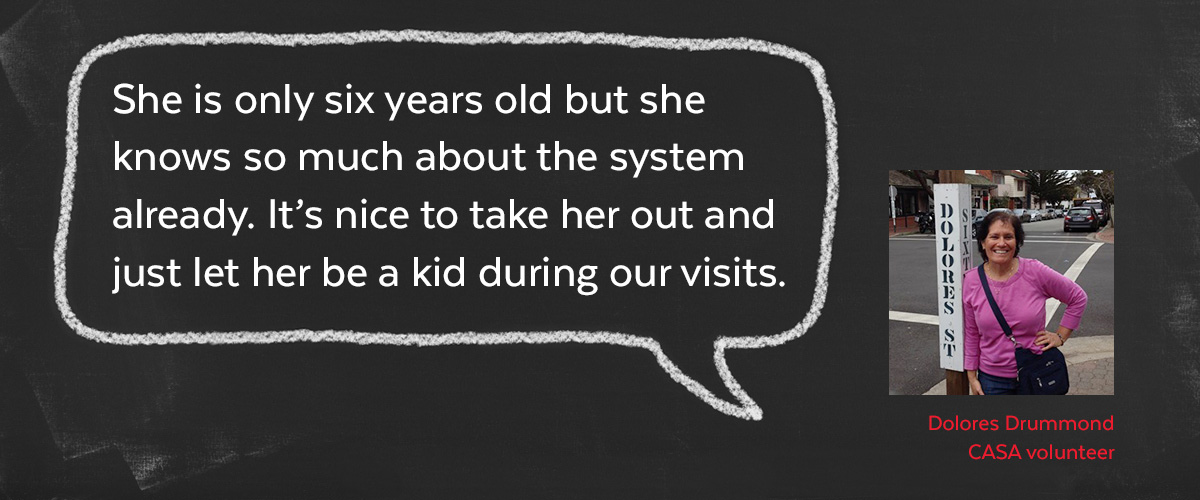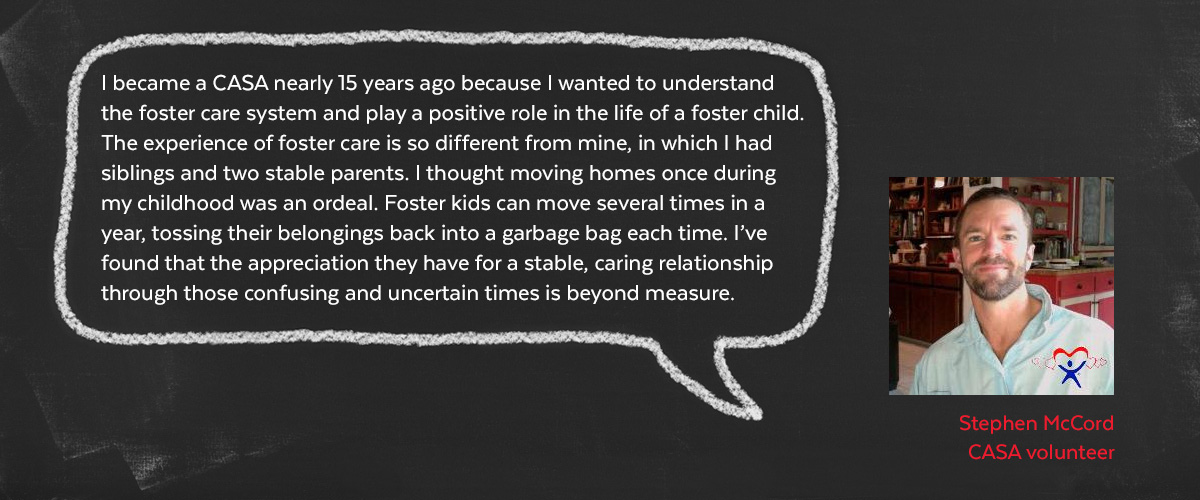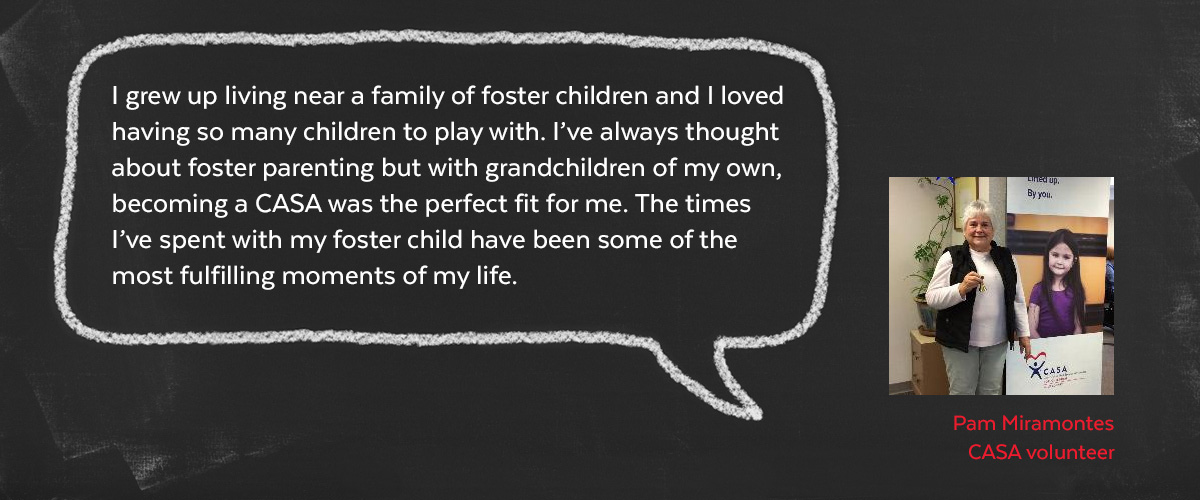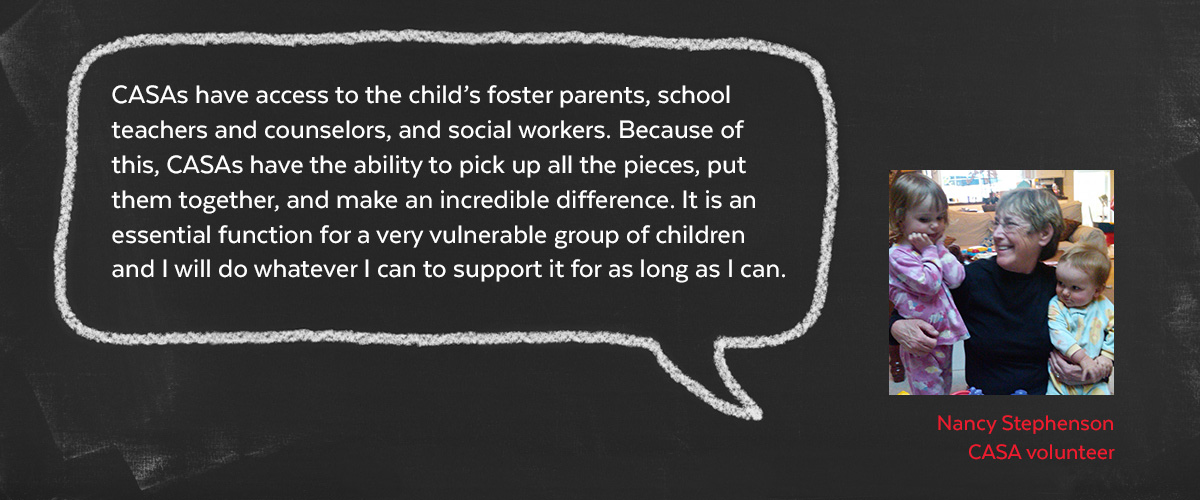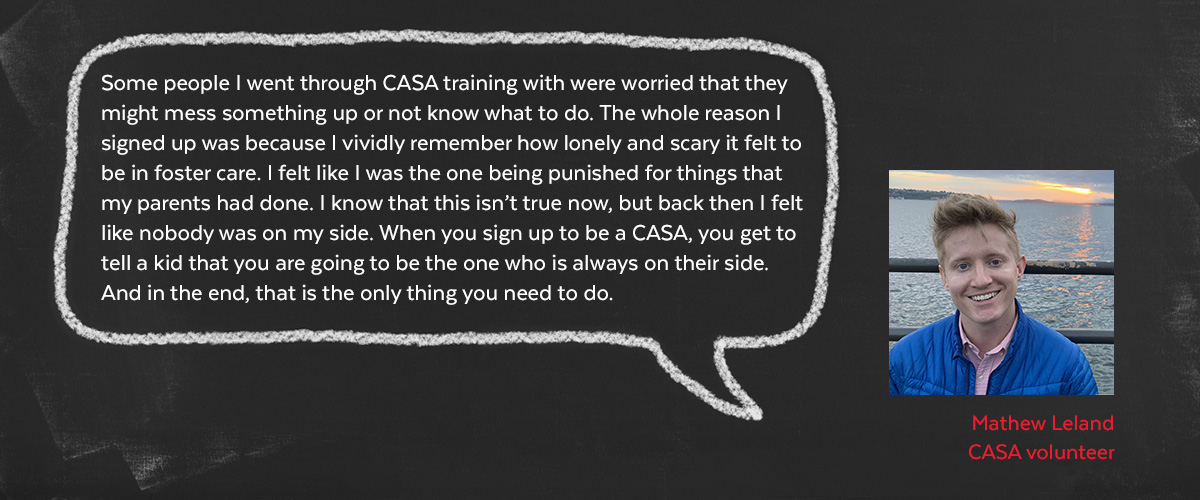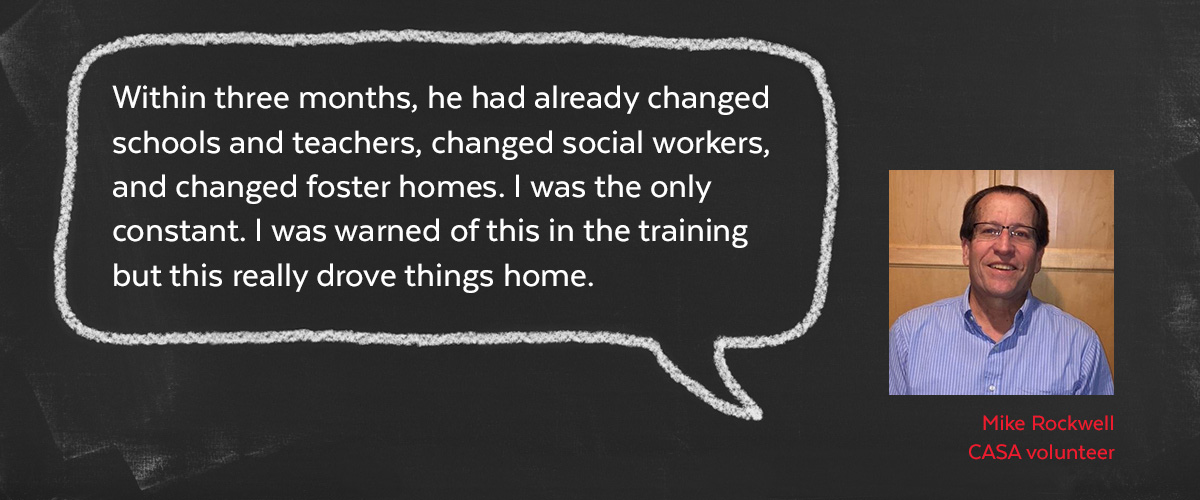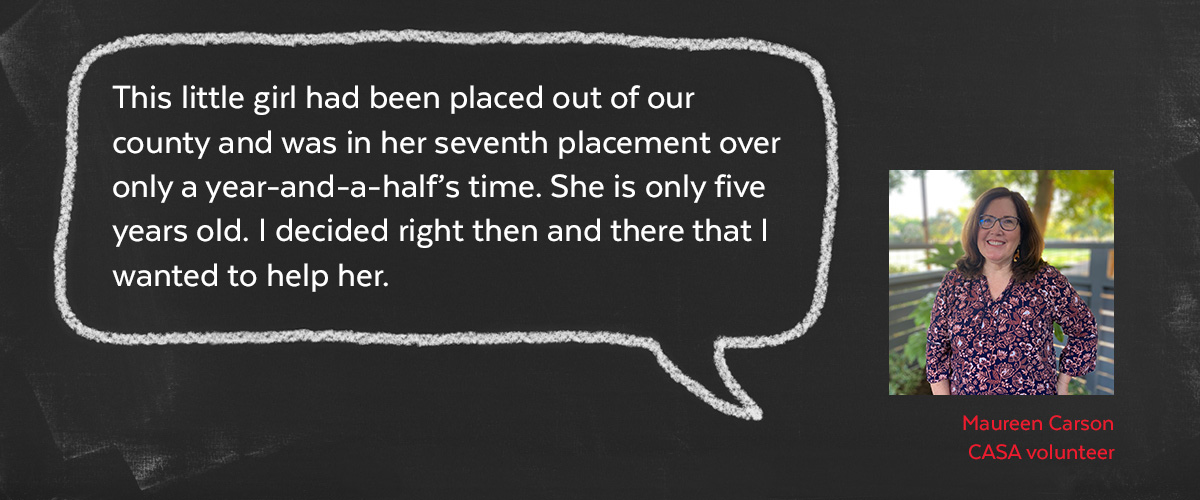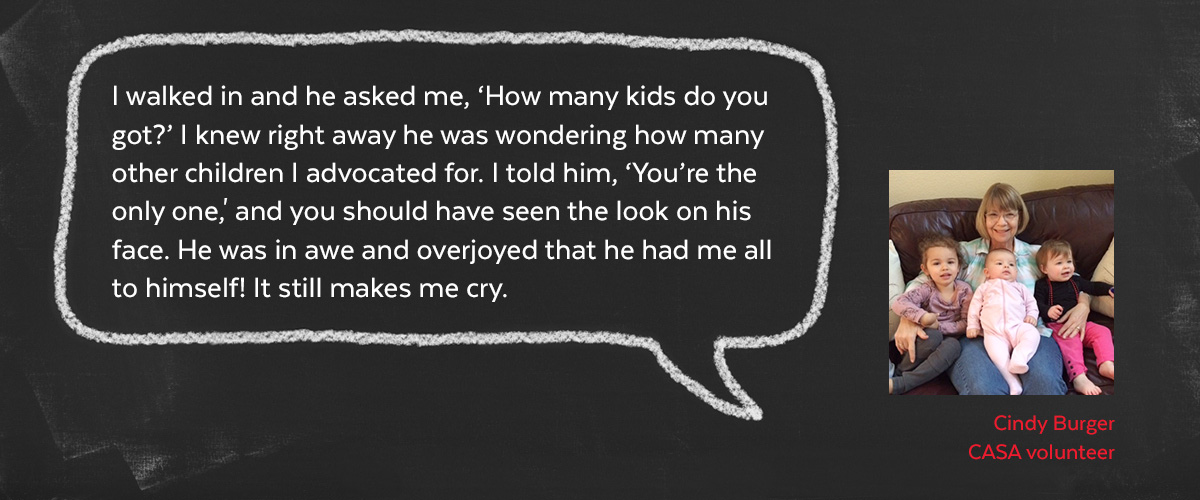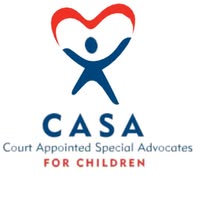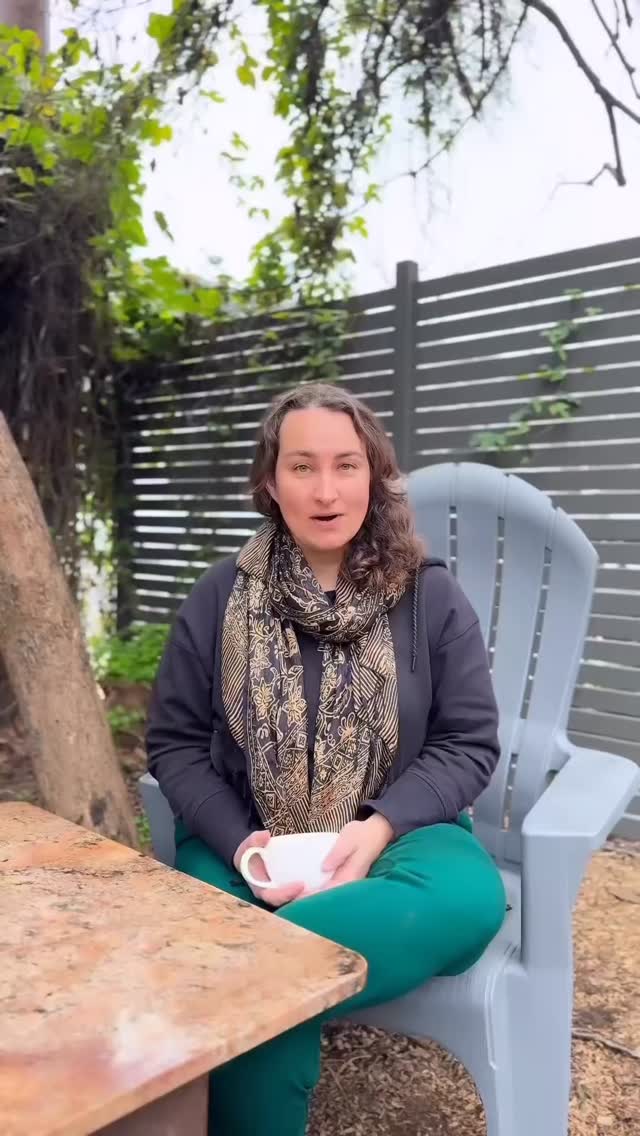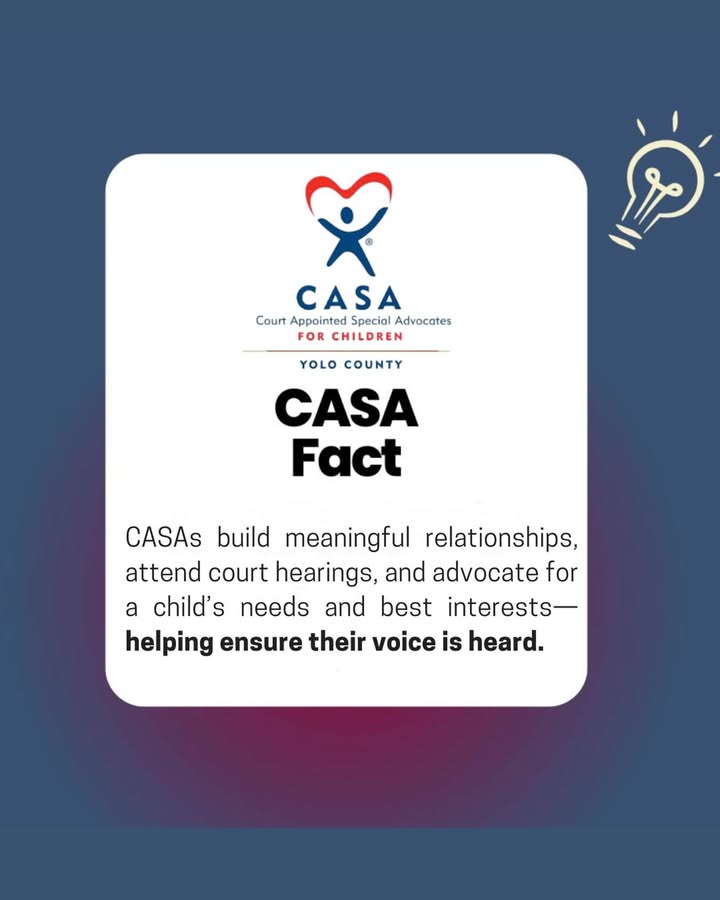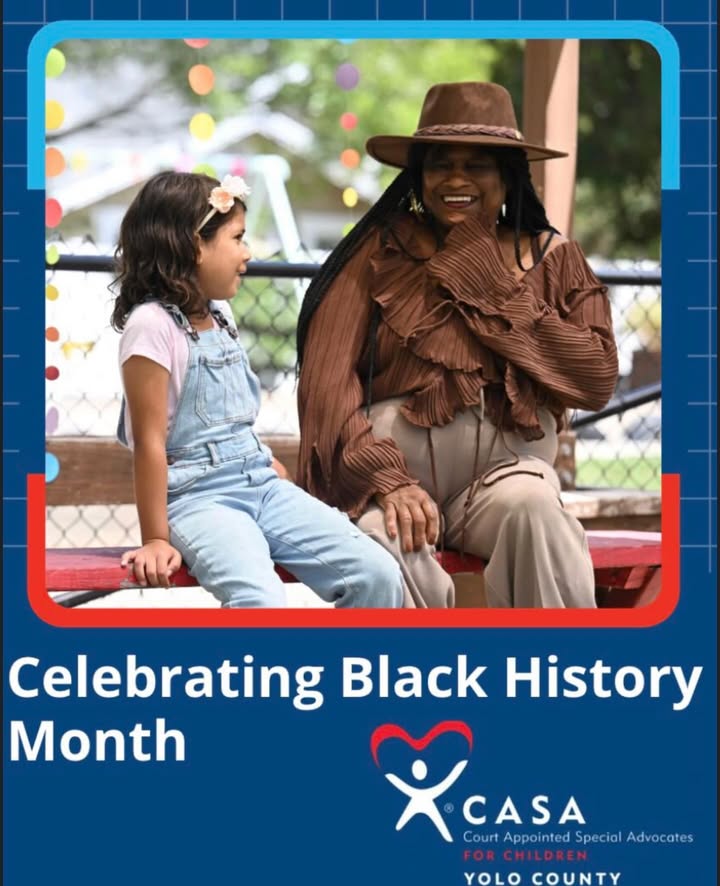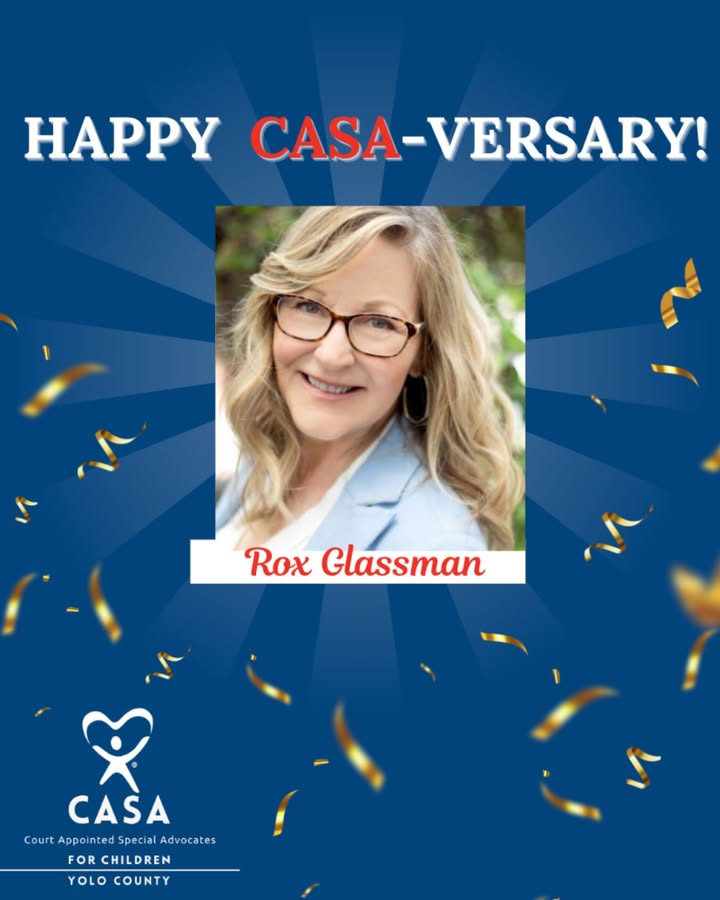Elliot Jones graduated from college at the peak of the Great Recession. Jobs in his fields of interest were scant, so Elliot turned to volunteering to get experience on his resume. Knowing he wanted to be an attorney or a social worker, a Google search led him to CASA. He did not know it then, but his work as a CASA volunteer would spark a passion.
Elliot began seeing his current CASA youth, who is now a non-minor dependent, eight years ago. “Having been on this assignment for so many years, I have been a fixture in his life during numerous moves and school changes.”
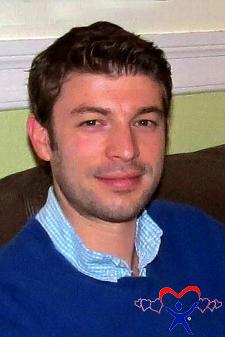
This consistency, according to Elliot, is beneficial in small and large ways. “I’ve helped steer some very big decisions concerning my CASA youth’s placements and care, but I’ve also assisted in seemingly minor ways over the years. For example, once when my CASA youth was going through a difficult time, I asked him if there was something he used to enjoy that we could bring back to his life. When he told me he liked gymnastics. I was able to secure funding that allowed him to take classes. When his group home failed to take him to these classes, I addressed this in court so as to ensure that additional lessons would not be missed. The court ordered that the group home transport him to his gymnastic classes going forward. The gymnastics classes really brightened his spirit over time and gave him something to look forward to.”
After becoming a CASA volunteer, Elliot saw the need to speak up for those who couldn’t always speak for themselves. Elliot went on to work full time as a court-appointed conservator for those adjudicated who lack the capacity to make decisions regarding their health, housing and finances. He also attended four years of law school in the evening while maintaining full-time employment and his volunteer responsibilities. He hopes to use his freshly minted law degree for a good cause. “I will soon begin a juvenile dependency clerkship. Being a CASA volunteer has directly impacted my decision to pursue a career representing foster youth.”
Elliot has positively influenced the lives of foster children in other ways, and hopes to continue to do so. He has successfully advocated for policies that help foster youth, both on the state and local levels. Additionally, when California extended foster care services to youths up to the age of 21 in 2012, he learned that they had the option of living in Supervised Independent Living Placements (SILP). A SILP is housing approved by the social worker, such as an apartment, which is not necessarily furnished as is the case with a traditional foster care placement. “I asked social workers if these youths were provided a moving stipend to pay for such things as furniture, kitchenware, utensils, dining tables, chairs, etc. and was told they are not. I then began collecting such items and storing them in my garage. When a social worker contacted me, I would do my best to provide the youth with these essential household items. I later met others interested in assisting this demographic, which eventually took shape as Make it Happen for Yolo County (MIH). MIH is now a 501(c)3 and I sit on its board. MIH continues to serve these Yolo County foster youths in the same capacity with the help of other dedicated board members.” A link can be found here: http://www.mihyolo.org/about-us.
As Elliot reflects on his experience as a CASA volunteer and foster care advocate, he goes back to his CASA youth. “Nothing can describe the moment when my CASA youth realized I was not being paid to spend time with him. He was clearly surprised… and so was I. When I was growing up, the thought that someone would be paid to spend time with and help me never crossed my mind.” Elliot continues, “My CASA youth took up guitar, which he eventually became quite good at. One day, when he first started playing, we were just hanging out in a park and playing guitar. I got to show him a few riffs and he showed me some too. These are such simple moments that kids usually have with their parents, extended family members and friends. Foster youth don’t get enough of these moments, and when you think about it, these moments shape childhoods and affect adult lives.”

